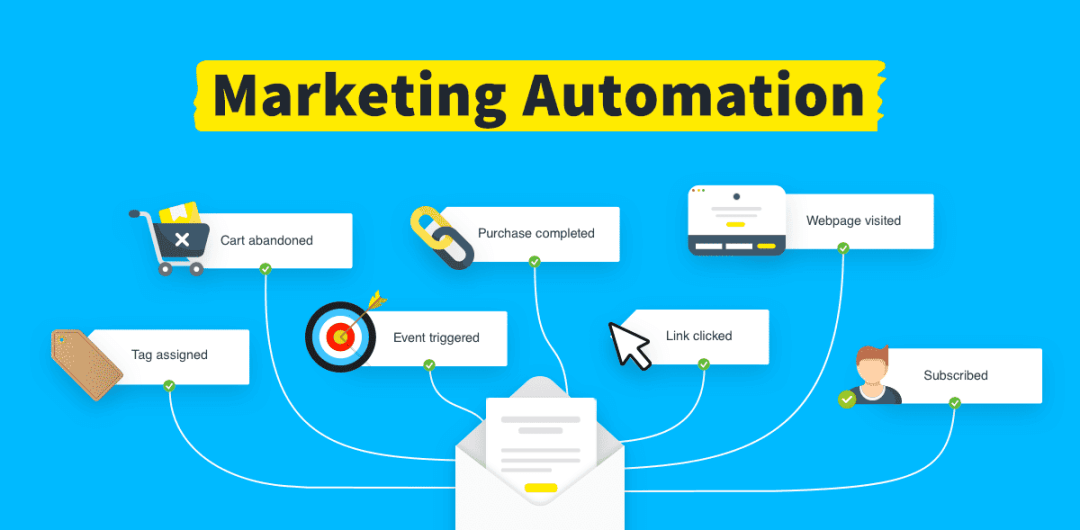Navigating the Digital Landscape: The Role of Marketing Automation Platforms for Small Businesses
In today’s digital age, small businesses face the challenge of navigating a complex and competitive online landscape. With limited resources and manpower, finding efficient ways to reach and engage with their target audience is essential for growth and success. Marketing automation platforms have emerged as invaluable tools for streamlining and scaling small businesses’ online marketing operations.
This article explores the significance of marketing automation platforms in empowering small businesses to enhance their online presence, nurture leads, and track campaign performance in real-time.
Streamlining Marketing Operations with Automation

Marketing automation platforms offer small businesses a centralized hub for managing various aspects of their online marketing efforts. From email marketing and social media management to lead nurturing and customer relationship management (CRM), these platforms streamline processes and eliminate manual tasks, allowing businesses to focus their time and resources more strategically.
Small businesses can improve efficiency and productivity while maintaining a consistent brand presence across channels by automating repetitive tasks such as sending follow-up emails, scheduling social media posts, and segmenting leads based on behavior.
Enhancing Engagement through Personalization
One of the key benefits of marketing automation platforms is their ability to enable personalized communication with prospects and customers. Businesses can create targeted campaigns and personalized workflows that resonate with their audience by leveraging customer data and behavior insights.
For example, automation tools can dynamically adjust email content based on recipients’ interests and preferences, deliver personalized product recommendations on social media, and trigger automated responses to specific actions or milestones in the customer journey. This level of personalization enhances engagement and builds trust and loyalty among customers.
Nurturing Leads with Automated Workflows
Effective lead nurturing is essential for converting prospects into customers and driving revenue growth. Marketing automation platforms facilitate this process by enabling businesses to create automated workflows that guide leads through the sales funnel. These workflows can include a series of automated emails, social media interactions, and personalized content designed to educate, engage, and nurture leads at each stage of the buyer’s journey. By delivering the right message to the right person at the right time, businesses can move leads closer to conversion and maximize the return on their marketing investment.
Manual Link Building as a Marketing Tactic
In addition to leveraging automation tools, small businesses can also benefit from manual link building as a marketing tactic. Manual link building involves actively seeking out opportunities to earn backlinks from reputable websites and online publications.
By creating high-quality content, reaching out to relevant influencers and bloggers, and participating in industry forums and communities, businesses can attract natural backlinks that improve their website’s search engine rankings and drive organic traffic. While manual link building requires more time and effort compared to automated techniques, it offers long-term benefits in terms of brand visibility, credibility, and authority in the online space.
Tracking Campaign Performance in Real-Time
Measuring the effectiveness of marketing campaigns is crucial for small businesses to understand what works and what doesn’t. Marketing automation platforms provide robust analytics and reporting capabilities that allow businesses to track campaign performance in real-time and gain actionable insights into audience engagement, conversion rates, and ROI.
By monitoring key metrics such as email open rates, click-through rates, social media engagement, and lead conversion rates, businesses can identify trends, optimize campaigns on the fly, and make data-driven decisions to drive better results.
Choosing the Right Marketing Automation Platform
With a plethora of marketing automation platforms available in the market, choosing the right one can be daunting for small businesses. When evaluating options, businesses should consider factors such as ease of use, scalability, integration capabilities, pricing, and customer support.
Choosing a platform that aligns with the business’s goals, budget, and technical requirements and provides the features and functionality needed to support its marketing efforts effectively is essential. Additionally, businesses should invest time in training and onboarding to ensure that team members are proficient in using the platform and maximizing its potential.
In conclusion, marketing automation platforms play a vital role in streamlining and scaling small businesses’ online marketing operations. By automating tasks, enhancing engagement through personalization, nurturing leads with automated workflows, and tracking campaign performance in real-time, these platforms empower businesses to reach their target audience more efficiently, convert leads into customers, and drive revenue growth. As the digital landscape continues to evolve, investing in the right marketing automation platform can provide small businesses with a competitive edge and position them for long-term success in the digital marketplace.



